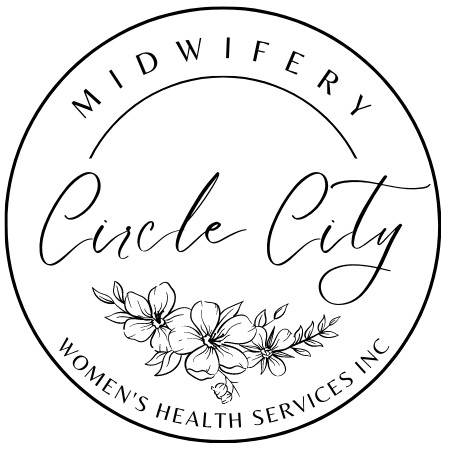Menopause Management

Lasting Relief and Compassionate Care Through It All
At
Circle City Midwifery, we understand how menopause can turn your world upside down, and we believe anyone going through it deserves compassionate support. Whether you’re just starting to notice symptoms or are already in the thick of it, we’re here to walk alongside you with understanding, expert guidance, and personalized care.
Stages

Perimenopause
Perimenopause is the phase before menopause begins, usually lasting three to five years. Most women enter this stage during their late 40’s. During this time, your hormone levels start to change, and your body produces less estrogen. You might notice irregular periods and start experiencing some common menopause symptoms. However, it is still possible to become pregnant during this stage.

Post-menopause
This period is after menopause and lasts for the rest of your life. While menopause symptoms tend to fade during this time, some mild symptoms may linger for a few years. Due to low estrogen levels, individuals in the postmenopausal phase are at risk of conditions like heart disease and osteoporosis. For your post-menopause care needs, we are here to be your reliable partner, helping you stay healthy and feel your best in this new chapter of life.
Menopause Symptoms
You may be transitioning to menopause if you experience the following symptoms:
- Irregular periods
- Breast tenderness
- Night sweats or cold flashes
- Worsening postmenstrual syndrome (PMS)
- Vaginal dryness (causing discomfort during sex)
- Hot flashes (a sudden warm feeling that spreads over your body)
- Emotional changes (irritability, mood swings, or depression)
Some people may also experience:
- Weight gain
- Headaches
- Palpitations
- Hair loss or thinning
- Joint and muscle pains
- Changes in libido (sex drive)
- Difficulty concentrating or memory lapses
Why Choose Circle City Midwifery for Menopause Care?
The menopause experience varies from person to person, and we believe acknowledging your unique needs first is the most effective approach. At Circle City Midwifery, we listen to you and advocate for your preferences, creating a tailored care plan accompanied by continuous support. We offer a range of services, specifically focusing on natural menopause treatments to ease you into this new chapter of life.
Our care teams are dedicated to offering ongoing support and helping you embrace the changes with confidence, strength, and grace. With Circle City Midwifery, you will have the support and care you deserve as you approach this life-changing process.






